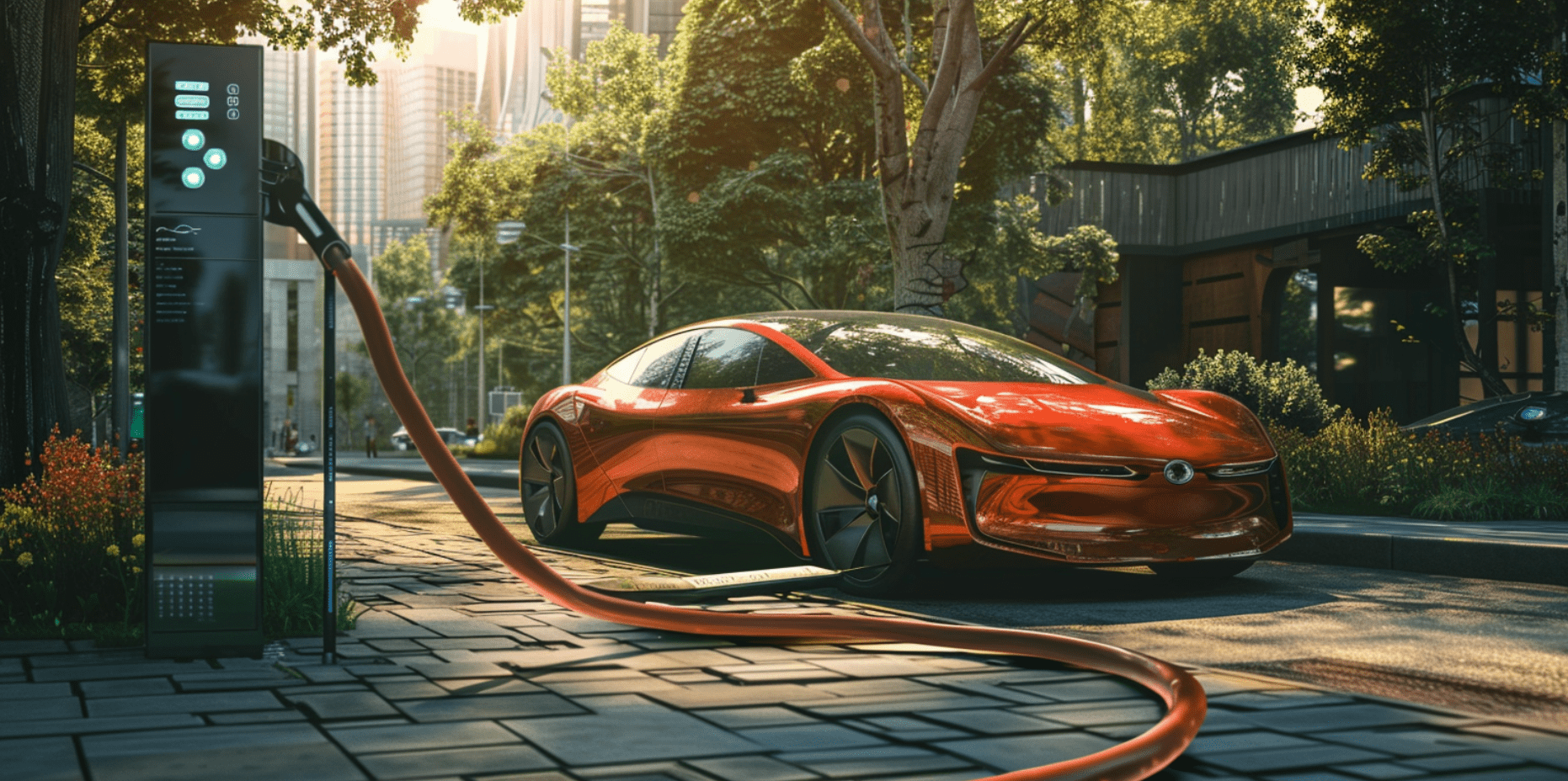Designing your eco-friendly home with electric car chargers is essential for a sustainable lifestyle. By integrating electric car chargers for home, you can conveniently charge your electric vehicle (EV) and reduce your carbon footprint. This article will explore the various aspects of designing an eco-friendly home with electric car chargers, including installation requirements, benefits, and future trends.
How to Choose the Best Electric Vehicle Charger for Your Home
When selecting an electric vehicle (EV) charger for your home, it’s essential to consider various factors to ensure optimal charging performance and convenience. Understanding the different types of EV chargers, evaluating key factors, and considering installation requirements are crucial steps in making an informed decision.
Understanding Different Types of EV Chargers
Several EV chargers are available for home use, each with its own distinct features and charging capabilities. These include Level 1 chargers, Level 2 EV chargers, and DC fast chargers for electric vehicle charging. Level 1 chargers are typically included with the purchase of your EV and can be plugged into a standard household outlet. Level 2 chargers offer faster charging speeds and require professional installation with a dedicated electrical circuit. DC fast chargers provide rapid charging capabilities but are less commonly used for residential purposes. Understanding the differences between these types of chargers will help you determine which one is best suited for your needs.
Factors to Consider When Selecting an EV Charger for Home
When selecting an electric vehicle charger for your home, several key factors must be considered. First, you need to assess the charging speed required for your EV. Different chargers offer varying charging speed levels, and choosing one that meets your vehicle’s charging needs, like a Level 2 EV charger for quicker charging, is crucial. Compatibility with your specific EV model is another important consideration. Ensure your charger is compatible with your EV’s charging port for a seamless charging experience.
Another factor to consider is the installation cost. While Level 1 chargers usually have lower installation costs, Level 2 chargers may require professional installation and additional electrical work. Evaluating the overall installation cost and the long-term benefits of faster charging speeds and convenience is essential.
Smart charging features are also something to consider. Some EV chargers offer smart functionalities such as scheduling charging times, remote monitoring, and integrating smart home systems. These features can improve energy management and optimize charging times based on your preferences and electricity rates, thus enhancing your electric vehicle charging station’s efficiency.
Installation Requirements for Home EV Chargers
Before installing an electric car charger at home, it is crucial to understand the installation requirements. Considerations include the electrical capacity of your home, wiring infrastructure, and available space for the charger. For Level 2 EV charging, a NEMA 14-50 outlet is often required. Adequate electrical capacity and a dedicated electrical circuit for the charger are important to ensure safe and efficient charging. Additionally, professional installation may be required to meet local electrical codes and regulations.
Consulting with a qualified electrician is highly recommended to assess your home’s suitability for the chosen EV charger and to ensure that the necessary electrical upgrades are made to accommodate your charging needs.

Benefits of Installing an Electric Car Charger at Home
Installing home electric car chargers offers numerous benefits, including a more convenient and sustainable lifestyle. Let’s explore some key advantages of having a home charging solution for your electric vehicle (EV).
Convenience of Home Charging for Electric Vehicles
One of the primary benefits of installing the best electric car chargers for home is its convenience. With a home charging station, you can conveniently charge your EV overnight or whenever it is parked at home. This eliminates the need to rely solely on public charging stations, saving you time and effort. Whether you need a full charge or a top-up, having a home EV charging station ensures your electric vehicle is always ready for your next trip.
Cost Savings and Environmental Impact of Home EV Charging
Home EV charging can lead to significant cost savings compared to traditional gasoline-powered vehicles. Charging your EV at home is generally cheaper than using public charging stations or relying on gasoline. By utilizing the electricity from your home and taking advantage of lower off-peak rates, you can reduce your charging expenses over time. Moreover, home charging for electric cars contributes to a greener environment by reducing greenhouse gas emissions and dependence on fossil fuels.
Increasing Resale Value of Your Property with EV Charger
Investing in home electric car chargers can increase the resale value of your property. As electric vehicles become increasingly popular, potential homebuyers are more likely to consider properties with charging infrastructure. By installing a home charging station, you are enhancing the value of your property and attracting a growing market of eco-conscious buyers.
Therefore, installing an electric car charger at home offers convenience, cost savings, environmental benefits, and the potential to increase the resale value of your property. With home charging solutions becoming more accessible and affordable, it’s a smart investment for electric vehicle owners.
Top Electric Car Charger Brands and Models for Home Use
This section will explore the brands that offer the best electric car chargers for home use. The right charger is essential to efficiently charge your electric vehicle (EV) and ensure a seamless charging experience. Let’s review popular EV charger brands like Chargepoint Home Flex and Tesla to help you make an informed decision.
Review of Popular EV Charger Brands like ChargePoint and Tesla
ChargePoint and Tesla are two well-known brands offering reliable and advanced charging solutions for home EV charging.
ChargePoint is a leading provider of electric car charging stations, with a wide range of options suitable for home use. Their chargers are known for their durability, smart charging capabilities, and user-friendly interfaces. Additionally, they offer a user-friendly mobile app that allows you to easily manage and monitor your vehicle charging sessions at your electric vehicle charging station.
Tesla, a renowned electric vehicle manufacturer, also offers a line of home EV chargers. These chargers are specifically designed to complement Tesla electric vehicles and provide fast and efficient charging. They are compatible with Tesla’s proprietary charging network and offer seamless integration with Tesla vehicles.
Both ChargePoint and Tesla chargers have received positive reviews from users, reflecting their reliability and performance.
Features to Look for When Choosing the Best Home EV Charger
When selecting the best home EV charger for your needs, several key features should be considered:
- Wi-Fi Connectivity: Look for chargers that offer Wi-Fi connectivity, allowing you to monitor and control your charging sessions remotely.
- Smart Charging Capabilities: Chargers with smart charging capabilities enable you to optimize your charging schedule based on electricity prices, off-peak hours, and grid demand.
- Portability: If you value portability, consider chargers that are easy to install and can be conveniently moved or taken along on road trips.
- Safety Features: Look for chargers with built-in safety features, such as surge protection, overvoltage protection, and ground fault detection, to ensure safe and reliable charging.
These features will help you choose the best electric vehicle charging station for your home that meets your requirements.
Essential Tips for Efficient and Safe Home EV Charging
Several essential tips should be kept in mind to ensure efficient and safe home EV charging. These tips help you optimize the charging process and contribute to the longevity of your electric vehicle (EV) battery and the overall performance of your home EV charging station.
Ensuring Proper Electrical Wiring and Circuit Capacity for EV Chargers
One key aspect of safe and efficient home EV charging is ensuring the proper electrical wiring and circuit capacity for your EV charger. Before installing an electric vehicle charger, it is essential to consult with a certified electrician to evaluate your home’s electrical system. This evaluation will help determine if the existing wiring and circuitry, possibly including a NEMA 14-50 outlet, can accommodate the charging requirements of your electric vehicle charging station. Upgrading your electrical system, if necessary, will ensure safe and reliable charging.
Setting Up a Charging Schedule for Optimal EV Battery Health
Establishing a charging schedule is vital for maintaining the health and longevity of your EV battery. It is recommended that you charge your EV when electricity rates are lower, such as during off-peak hours or overnight. This helps save on electricity costs and promotes optimal battery health by avoiding frequent fast charging and high charging temperatures. Consult your EV’s battery management system or the manufacturer’s guidelines to determine the best charging schedule based on your daily usage patterns.
Maintaining and Troubleshooting Home EV Charging Equipment
Regular maintenance and troubleshooting of your home EV charging equipment are essential to ensure efficient operation. Periodically inspect your EV charger for any signs of wear or damage, and clean the charging cable connectors to maintain good electrical connections. Familiarize yourself with the manufacturer’s instructions for maintenance tasks specific to your EV charger model, including NEMA 14-50 plug maintenance if applicable.
If you encounter any issues with your home EV charging equipment, such as a charging interruption or error message, refer to the manufacturer’s troubleshooting guide. Sometimes, a simple reset or checking of the power supply may resolve the issue. However, if the problem persists, it is recommended to contact the manufacturer or a qualified electrician for further assistance.
Future Trends in Home EV Charging and Sustainability
As the demand for electric vehicles (EVs) continues to grow, so does the need for home EV charging technology advancements. One significant trend in this area is the development of smart charging technology for electric vehicles. Smart charging technology enables more efficient and optimized charging, which can positively impact both the charging experience and overall sustainability.
With smart charging technology, EV owners can take advantage of features such as scheduled charging, which allows them to optimize charging times based on their daily routines and electricity rates. Additionally, some smart chargers can communicate with utility companies and adjust charging speeds to help balance the grid’s electricity demand.
Integrating Renewable Energy Sources with Home EV Charging
Another future trend in home EV charging is the integration of renewable energy sources, such as solar power, with the charging infrastructure. By harnessing the sun’s power, EV owners can further reduce their vehicles’ carbon footprint. This not only contributes to a greener environment but also helps mitigate the impact of rising electricity costs through efficient electric vehicle charging.
Integrating renewable energy sources into home EV charging systems requires careful planning and consideration. Factors such as available sunlight, the size of the solar installation, and the EV’s energy demand must be taken into account. However, with the right setup, EV owners can enjoy the benefits of clean and sustainable energy for their daily charging needs.
Potential Government Incentives for Eco-Friendly Home Charging Solutions
In recognition of electric vehicles’ importance and potential to reduce carbon emissions, governments around the world are offering various incentives to encourage the adoption of eco-friendly electric car chargers for home use. These incentives may include tax credits, rebates, and grants that can significantly offset the costs associated with installing a home EV charger.
By taking advantage of these government incentives, EV owners can save money and contribute to the broader goal of a cleaner and more sustainable transportation sector. It is worth exploring the available incentives in your region to make the process of installing a home EV charger more affordable and accessible.
